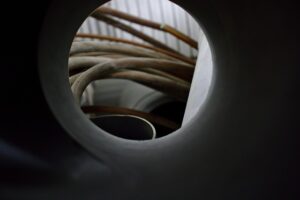Commercial gas water heaters with integrated insulation minimize standby losses, offering superior energy efficiency and cost savings. High-capacity systems like tankless heaters and condensing models cater to demanding hot water needs in institutions, reducing carbon footprints through advanced heat recovery technology. Regular maintenance ensures optimal performance, making these modern heaters a sustainable choice for hotels and restaurants.
In the pursuit of energy-efficient hot water solutions, commercial gas water heaters with integrated insulation are emerging as a game-changer. Standby losses, while common in conventional models, can be significantly minimized through innovative design. This article explores how integrated insulation enhances energy efficiency and delves into the key features, benefits, implementation tips, and maintenance practices for optimal performance of modern insulated commercial gas water heaters.
- Understanding Standby Losses in Commercial Gas Water Heaters
- The Role of Integrated Insulation in Energy Efficiency
- Key Features and Benefits of Modern Insulated Models
- Implementation and Maintenance Tips for Optimal Performance
Understanding Standby Losses in Commercial Gas Water Heaters
Commercial gas water heaters are a staple in many industries, from restaurants and hotels to institutional settings, providing hot water for various applications. However, one often overlooked aspect of their operation is standby losses—the energy wasted while the heater is idle but still operational. These losses occur due to heat evaporation through the tank’s surface and convection within the unit. In simple terms, even when not actively heating water, commercial gas water heaters continue to consume energy, contributing to higher operating costs and environmental impact.
Understanding standby losses is crucial in the context of commercial hot water systems, as it highlights the importance of efficient designs. High-capacity heaters, including tankless gas heaters and condensing water heaters, are gaining popularity for their ability to minimize these losses. Storage tank heaters, while traditional, often struggle to match the energy efficiency of their modern counterparts. By focusing on energy-efficient systems, such as those with integrated insulation, commercial establishments can significantly reduce their energy bills and carbon footprint, making a significant step towards sustainability in institutional heating.
The Role of Integrated Insulation in Energy Efficiency
Integrated insulation plays a pivotal role in enhancing the energy efficiency of commercial gas water heaters. By minimizing standby losses, these insulated models significantly reduce energy consumption and operating costs, making them an attractive option for businesses seeking sustainable and cost-effective hot water solutions. This technology ensures that the water remains hot for longer periods without significant heat loss through the tank walls, a common issue in traditional storage tank heaters.
For commercial hot water systems, particularly in high-demand settings like restaurants and hotels, energy-efficient gas fired water heating is paramount. Condensing water heaters, with their integrated insulation, offer a superior alternative to conventional storage tank heaters. They are designed to capture and reuse heat that would otherwise be lost, boosting the overall efficiency of the system. This not only translates to lower utility bills but also contributes to a more sustainable institutional heating approach, aligning with the growing demand for eco-friendly energy solutions in various commercial applications.
Key Features and Benefits of Modern Insulated Models
Modern commercial gas water heaters with integrated insulation offer significant advantages over traditional models. These advanced systems are designed to minimize standby losses, ensuring efficient energy utilization and reduced operational costs. Key features include robust insulation technology that maintains optimal water temperature for extended periods, preventing heat loss and conserving energy.
The benefits extend beyond energy efficiency. High-capacity heaters can cater to the demanding hot water needs of restaurants, hotels, and institutional settings, providing reliable and consistent performance. Condensing water heaters, a variant among these models, further enhance energy efficiency by capturing residual heat from exhaust gases, making them an eco-friendly choice for sustainable operations. By combining exceptional performance with environmental consciousness, modern insulated commercial gas water heaters are transforming the landscape of gas fired water heating in various sectors, including institutional and hotel hot water applications.
Implementation and Maintenance Tips for Optimal Performance
Implementing commercial gas water heaters with integrated insulation can significantly enhance energy efficiency and minimize standby losses, leading to substantial cost savings in institutions like hotels, restaurants, and other large facilities. To optimize performance, regular maintenance is key. This includes periodic cleaning of the heater’s burners and heat exchanger to prevent buildup that hinders efficient gas firing, as well as checking for any leaks in the insulation or connections.
Additionally, ensuring proper venting systems and adequate airflow around the heaters prevents condensation, which can reduce heating efficiency. For high-capacity applications, consider condensing water heaters, which capture and reuse heat from exhaust gases, further boosting energy efficiency. Tankless gas heaters are another option for institutions seeking immediate hot water without storage tank overhead, contributing to both space savings and reduced energy consumption.
Commercial gas water heaters with integrated insulation offer a promising solution to minimize standby losses, enhancing energy efficiency without compromising performance. By understanding the importance of reducing these losses, adopting modern insulated models, and implementing proper maintenance, businesses can significantly lower energy consumption and operational costs. These steps contribute to a more sustainable and cost-effective hot water supply for commercial spaces.






